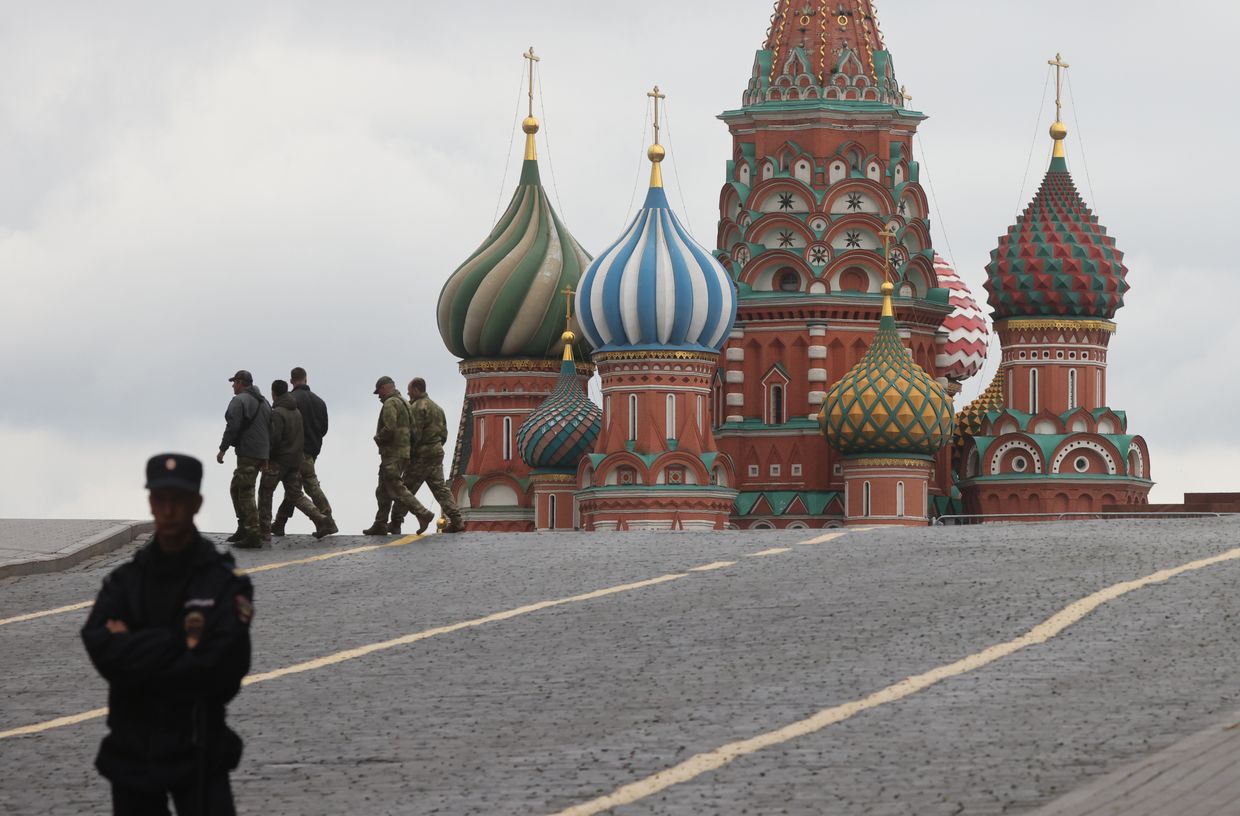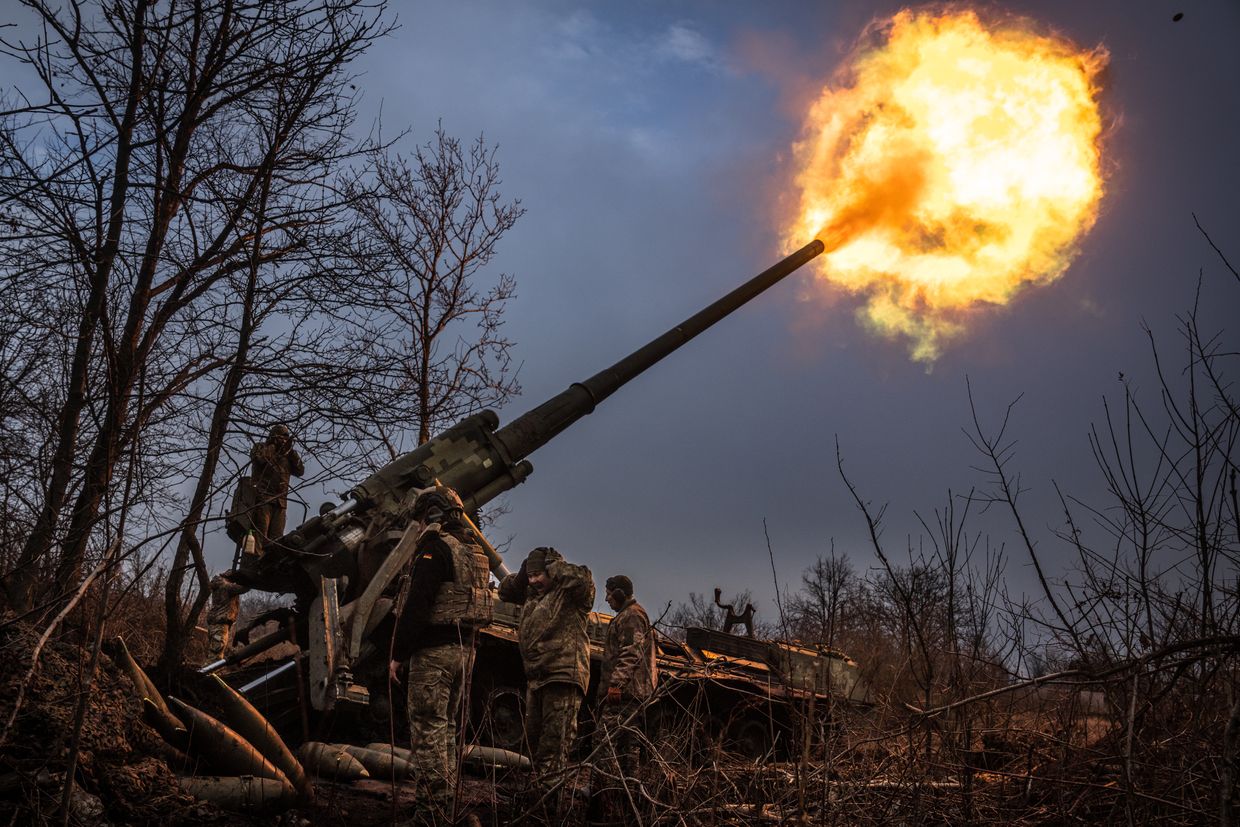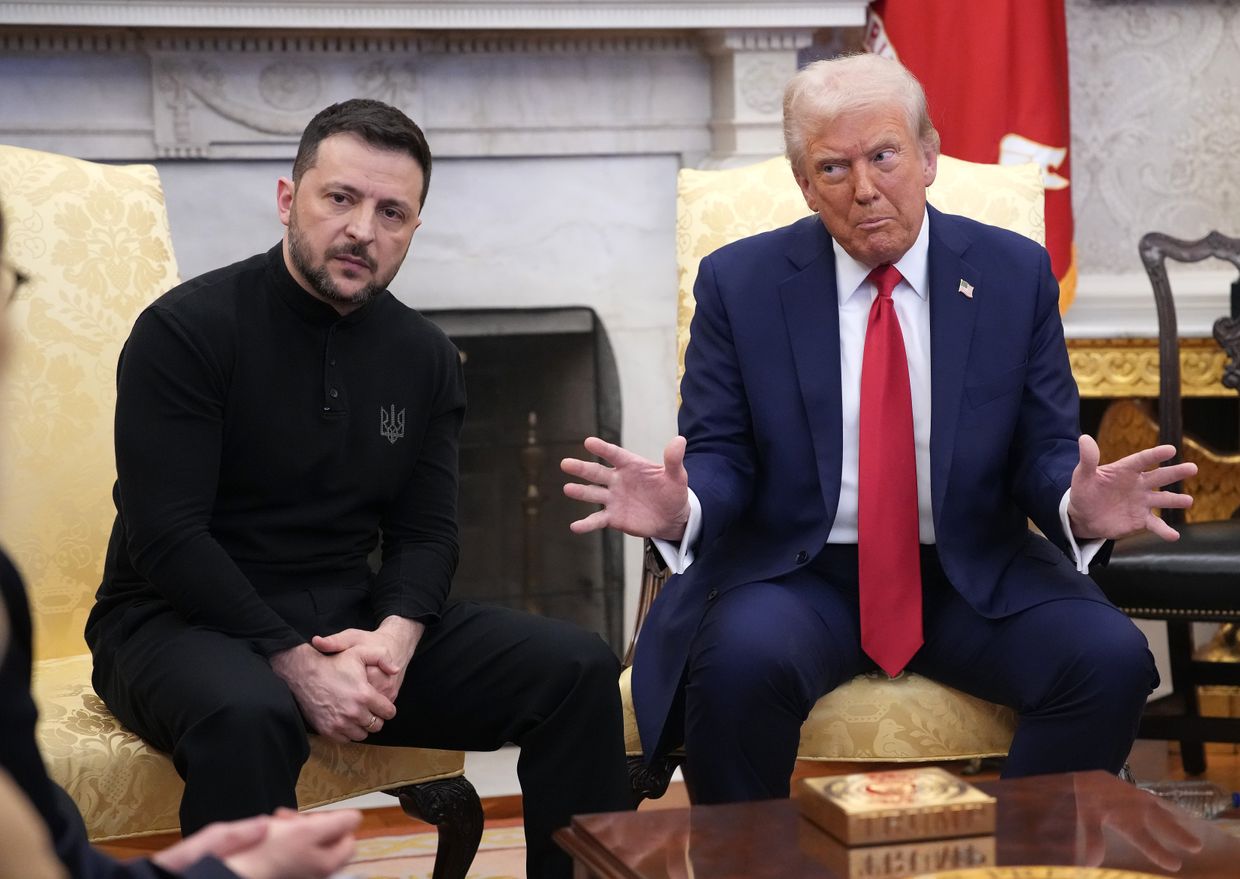"We have a plan B and a plan C. But our focus is plan A, the essence of which is to get everyone's support" for Ukraine's accession, EU foreign policy chief Kaja Kallas said.
"(T)he presence at the Victory Parade of a country that bombs cities, hospitals, and daycares, and which has caused the deaths and injuries of over a million people over three years, is a shame," Polish Prime Minister Donald Tusk said.
"According to the participants of the performances, their goal is to remind the civilized world of the barbaric actions of Moscow, which for many years and decades has systematically violated international law," a source in Ukraine’s military intelligence agency (HUR) told the Kyiv Independent.
"I have great hope that an agreement for a ceasefire in Ukraine will be reached this weekend," German Chancellor Friedrich Merz said on May 9, shortly before traveling to Kyiv alongside the leaders of France, Poland, and the U.K.
U.K. Prime Minister Keir Starmer, French President Emmanuel Macron, German Chancellor Friedrich Merz, and Polish Prime Minister Donald Tusk will arrive in Kyiv early on May 10.
The United States embassy in Kyiv on May 9 issued a warning that Russia could launch "a potentially significant" attack in the coming days, despite Putin's self-declared Victory Day "truce."
The sanctioned oil tankers have transported over $24 billion in cargo since 2024, according to Downing Street. The U.K. has now sanctioned more shadow fleet vessels than any other country.
The sanctions list includes 58 individuals and 74 companies, with 67 Russian enterprises related to military technology.
Washington and its partners are considering additional sanctions if the parties do not observe a ceasefire, with political and technical negotiations between Europe and the U.S. intensifying since last week, Reuters' source said.
Despite the Kremlin's announcement of a May 8–11 truce, heavy fighting continued in multiple regions throughout the front line.
Putin has done in Russia everything that Luiz Inacio Lula da Silva had been against in Brazil.
Half of Russians back temporary ceasefire in Ukraine, poll shows

Around 50% of Russians support a temporary ceasefire in Ukraine, according to a poll by the independent Russian pollster Levada Center published on April 1.
The poll follows Ukraine's acceptance of a full 30-day ceasefire proposed by the U.S. during talks in Saudi Arabia on March 11. The Kremlin refused to accept the ceasefire immediately, demanding conditions that would undermine Kyiv's defenses, particularly by halting foreign military aid.
Instead, Ukraine, Russia, and the U.S. agreed last week to a partial truce covering energy infrastructure and the Black Sea.
The partial ceasefire has not come into effect either. Russia and Ukraine have accused each other of violating the ban on energy infrastructure strikes, and Moscow has stated that the Black Sea ceasefire would take effect only after some sanctions against Russia are lifted.
The Levada Center survey found that 26% of respondents strongly support a truce, while 24% "somewhat support" it. Meanwhile, 41% oppose the idea, including 25% who strongly reject it.
Support for a ceasefire is higher among women, young Russians under 24, and those critical of the country's direction, distrustful of President Vladimir Putin, or skeptical of state media.
Those who watch television news less frequently or prefer independent sources, such as YouTube, are also more likely to back a pause in fighting.
Opposition to the truce is more common among men, older Russians, Putin supporters, daily television viewers, and those who back Russia's war against Ukraine.

Many respondents against a ceasefire believe it would allow Ukraine time to rearm (37%), while others see it as pointless (9%) or insist Russia must "go all the way" (8%).
Since launching its full-scale invasion, Moscow has intensified state propaganda, portraying the war as a defensive struggle against the West.
Russian television talk shows glorify the military and suppress dissent, reinforcing the Kremlin's narrative that the war is essential for national survival.
The Levada Center conducted the poll from March 22-26, surveying 1,615 adults across 137 settlements in 50 Russian regions. It is labeled a "foreign agent" in Russia under a law used to suppress independent media and NGOs.
Since implementing the partial ceasefire, Ukraine and Russia have accused each other of violating the energy truce, while Moscow has linked the Black Sea deal's future to Western sanctions relief.
Despite the mixed sentiment among the Russian public, the Kremlin has shown no sign of easing its broader war efforts, continuing large-scale assaults.
While the Trump administration has long expressed frustration with Kyiv over its negotiating stance and hesitancy on a U.S.-backed minerals deal, Reuters reported on April 1 that Washington is now also growing impatient with Moscow.

Most Popular

After 3 years of full-scale war in Ukraine, Europe announces plan to ban all Russian gas imports

Ukraine, Europe's ceasefire proposal includes US security guarantees, no recognition of Crimea, Reuters reports

Journalist Roshchyna's body missing organs after Russian captivity, investigation says

After Russia's deadly attack on Kyiv, Vance reposts denunciation of Zelensky

Ukrainian sea drone downs Russian fighter jet in 'world-first' strike, intelligence says
Editors' Picks

How medics of Ukraine’s 3rd Assault Brigade deal with horrors of drone warfare

As Russia trains abducted children for war, Ukraine fights uphill battle to bring them home

'I just hate the Russians' — Kyiv district recovers from drone strike as ceasefire remains elusive



